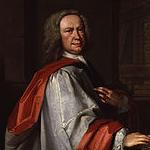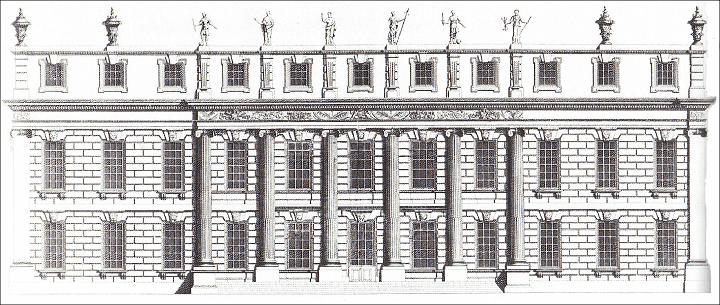Johann Christoph Pepusch (1667–1752) was born in Berlin, the son of a Protestant minister. He left Germany in search of a more just society after witnessing the execution without trial of a Prussian officer accused of insubordination. He arrived in London at some point around 1697, where he remained for the rest of his life.
Pepusch worked his way up from the lowly rank of viola player to become the director of music at Lincoln’s Inn Fields. His interest in music was both worldly and academic; in 1713 both he and William Croft were awarded the degree of DMus at Oxford, and late in his career he was elected a Fellow of the Royal Society, to whom he delivered a paper entitled “Of the Various Genera and Species of Music Among the Ancients”. At the same time he built up a reputation as a composer of instrumental music, a performer and impresario.
Pepusch’s cantatas are Italianate in structure, but uncompromisingly English in style. He chose to set English texts because he wanted his audiences to understand the words—unfortunately he chose texts that were opaque to the point of illiteracy. The music is another matter, it bewitchingly, breezily Arcadian. Corydon (featured in our South Sea Bubble programme) is taken from a collection of six cantatas dedicated to the Duke of Chandos, his patron. He was employed alongside Handel at Canons, Brydges estate near Edgware in Middlesex, where these works were first performed.
James Brydges was created first Duke of Chandos in 1717 “for no particular reason”. He speculated recklessly, firstly with the money accessible to him in his post as Paymaster General (a dodgy practice if ever there was one) and later, pocketing the profits, with his own dubiously gained but stupendous wealth. He invested particularly heavily in the South Sea Company and suffered major losses when the South Sea Bubble burst and was forced to dispense with his extensive retinue of artists, writers, architects and musicians, Pepusch and Handel among them.
Pepusch re-focused his attention on the theatre. He collaborated with John Gay to produce The Beggar’s Opera—a satirical take on corruption at the core of the British establishment. It remains his enduring legacy, although his input was very limited. Its influence is apparent in the works of Gilbert and Sullivan, and it was re-vamped by Brecht and Weill in 1928 to become Die Dreigroschenoper. It had the longest theatre run of any production up to that time. Robert Walpole (Britain’s first Prime Minister, and principal victim of Gay’s libretto) made sure that it’s sequel, Polly, was censored.
Pepusch seems to have stopped composing altogether after 1729 in order to fully indulge his scholarly interest in the music of the past, and to promote The Academy of Ancient Music, of which he was a founding member. He amassed an extensive collection of books and music, including the collection of music for the virginals now known as The Fitzwilliam Virginal Book.
© Concentus VII


